Hiroyuki Morioka is a Japanese science fiction novelist.

The Heroic Legend of Arslan is a Japanese fantasy novel series written by Yoshiki Tanaka. It was published from 1986 to 2017, with sixteen novels and one side-story in the official guidebook Arslan Senki Dokuhon. The story and setting is inspired by the history and mythology of ancient Persia.

Jan Baptist Weenix, also spelled Jan Baptiste Weeninx (1621–c. 1659), was a painter of the Dutch Golden Age. Despite his relatively brief career, he was a very productive and versatile painter. His favourite subjects were Italian landscapes with large figures among ruins, seaside views, and, later in life, large still life pictures of dead game or dogs. He was mainly responsible for introducing the Italian harbour scene into Dutch art, in mid-size paintings with a group of figures in the foreground.
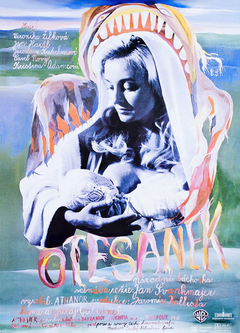
Little Otik, also known as Greedy Guts, is a 2000 Czech surreal dark comedy horror film by Jan Švankmajer and Eva Švankmajerová. Based on the folktale Otesánek by Karel Jaromír Erben, the film is a comedic live action, stop motion-animated feature film set mainly in an apartment building in the Czech Republic.
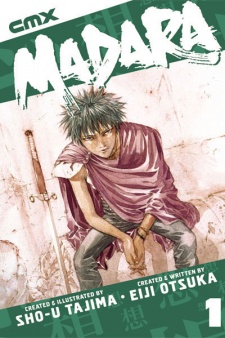
MADARA is a Japanese manga series written by Eiji Ōtsuka and illustrated by Shou Tajima. Originally published from 1987 to 1994, it is set in a mythological era in Japan and tells the story of Madara, a goodhearted teenage boy who uses fantastic prosthetic limbs called "gimmicks" and a legendary sword to fight his own father, the evil overlord Miroku. The franchise has also spawned video games and a two-part OVA.
Nobody's Son is a 1917 Hungarian film directed by Michael Curtiz.

Record of Lodoss War is a franchise of fantasy novels by Ryo Mizuno based on the work he originally created for a world called Forcelia as a rules-free setting for role-playing games (RPGs). There have since been multiple manga, anime and computer game adaptations, several of which have been translated into English. The plots generally follow the conventions and structure of the RPG systems including Dungeons & Dragons and Sword World RPG, in which several characters of distinct types undertake a specific quest.
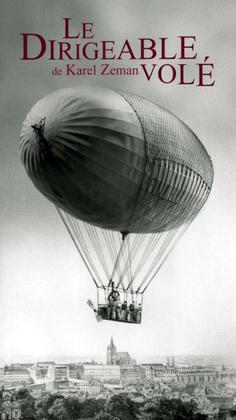
The Stolen Airship is a 1966 live-action/animated film by Czech filmmaker Karel Zeman. The story is based loosely on Jules Verne's novels Two Years' Vacation and The Mysterious Island. The film in Art Nouveau style consists of live-action scenes, generally shot in black and white, as well as hand-drawn, stop motion, and cutout animation. Various live-action and animated elements are often composited into the same scene.

Fruit of Paradise is a 1970 Czechoslovak avant-garde drama film directed by Věra Chytilová. It was entered into the 1970 Cannes Film Festival. The film is an adaptation of the Adam and Eve story. This was Chytilová's last film before she was placed on an eight-year ban by the Czechoslovak Government. Fellow Czech screenwriter and costume designer Ester Krumbachová collaborated with Chytilová on the screenplay, costumes, and decor.
Big Beat is a 1993 Czech musical comedy directed by Jan Hřebejk. It is set in 1959 in Prague's Hotel International. The film was Hřebejk's breakthrough box-office hit and the first feature film made by Hřebejk and Petr Jarchovsky as a directing-writing team. Jarchovsky wrote the script based on a story by Petr Šabach. The music and lyrics were written for the film by singer-songwriter Ivan Hlas, and veteran cameraman Jan Malir also worked on the film. The film won four Czech Lion awards, including Best Film of 1993, Best Director (Hřebejk), Best Actor and Best Original Score.
Rakuto Tochihara is a Japanese former actor from Tokyo, a graduate of Horikoshi High School. His debut role was in Boogiepop Phantom where he voiced the character Poom Poom. He later had a starring role in the 2005 Kamen Rider Series Kamen Rider Hibiki and its film Kamen Rider Hibiki & The Seven Senki as the character Asumu Adachi. His roles have also included the drama RH Plus as Ageha Seto and in the film Aquarian Age: The Movie as Naoya Itsuki. On February 28, 2018, he announced his decision to retire from the entertainment industry to take over his father's company.

Jitka Boho, née Válková is a Czech singer, former model and beauty pageant titleholder who won Česká Miss 2010 and finished in the top 15 in Miss Universe 2010.
Lovers in the Year One is a 1973 Czechoslovakian drama film directed by Jaroslav Balík. It was selected as the Czechoslovakian entry for the Best Foreign Language Film at the 47th Academy Awards, but was not accepted as a nominee.

Okouzlená is a 1942 Czechoslovak drama film directed by Otakar Vávra.

Tvoje tvář má známý hlas is a Czech reality singing series that is aired on Nova. It is both based on the Endemol format Your Face Sounds Familiar and an adaptation of the Spanish Tu cara me suena. The show was first broadcast on March 26, 2016, and is still aired. The show involves eight or ten celebrities portraying various iconic singers each week to win 25,000 CZK for their chosen charity.

Suburra: Blood on Rome is an Italian crime drama television series set in Rome. It is based on the 2015 film Suburra, in turn inspired by the novel of the same name by Giancarlo De Cataldo and Carlo Bonini. The series was initially released and intended as a prequel to the 2015 film during its first two seasons, but it changed direction in its final season, following Rai Fiction’s departure from the project, to become a separate, divergent adaptation. The series was developed by Daniele Cesarano, Barbara Petronio, Ezio Abbate and Fabrizio Bettelli for Netflix, making it its first Italian-language original television series. The show premiered on 6 October 2017 and ran for three seasons totaling 24 episodes until 30 October 2020. It was produced by Cattleya in association with Rai Fiction and Bartleby Film. Rai Fiction was not involved in the production of the third and final season.

Three Brothers is a 2014 Czech film directed by Jan Svěrák and written by his father, Zdeněk Svěrák.
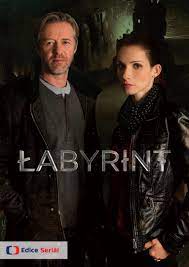
Labyrint (Labyrinth) is a Czech crime TV series. It combines the genres of thriller and detective stories. It was directed by Jiří Strach. The first season of the series aired from 31 August to 12 October 2015, the second season from 13 March to 24 April 2017, and the third season from 3 September to 15 October 2018.
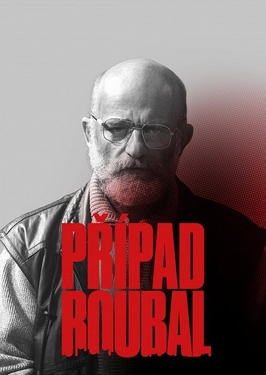
The Roubal Case is a three-part television miniseries by TV Nova, which premiered on the Voyo platform during November and December 2021. It was filmed by director Tereza Kopáčová in the production of Evolution Films. It is inspired by the real events surrounding serial killer Ivan Roubal. Hynek Čermák, Kamila Trnková, Vojtěch Vodochodský, Dagmar Havlová, Jan Čenský and David Švehlík starred in the series.

We Love is a 1952 Czech drama film directed by Václav Kubásek and starring František Peterka, Jaroslav Průcha and Jarmila Krulišová. It was shot at the Barrandov and Hostivař Studios in Prague and on location around Kladno, Ostrava and Libušín. The film's sets were designed by the art director Alois Mecera. It reflected the ideology of the ruling Communist Party and the Stalin-era aesthetic of socialist realism.














